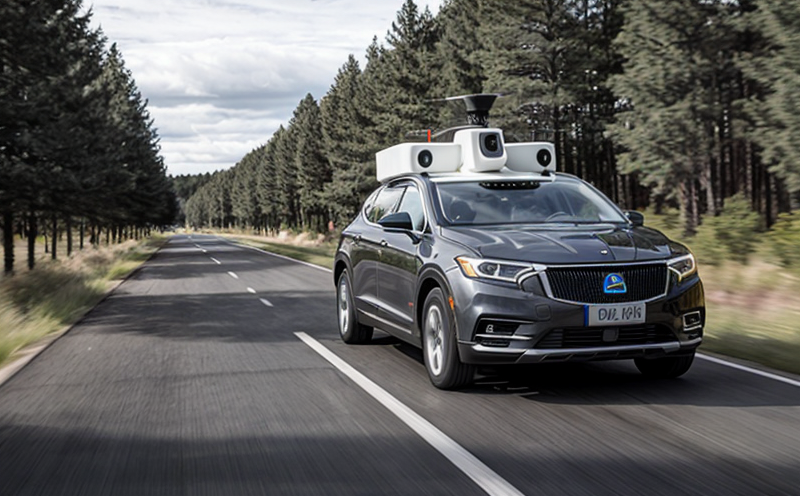UL 2202 Battery Charging Safety for Autonomous Mobility Systems
The UL standard UL 2202 is a critical benchmark ensuring the safety of battery charging systems, particularly relevant to autonomous mobility devices. This standard addresses the myriad risks associated with rapid and high-power battery charging in autonomous vehicles, drones, robotics, and other mobile platforms.
The test parameters for UL 2202 include rigorous evaluation of battery chargers under various fault conditions such as overcurrent, overvoltage, short circuit, and thermal stress. Specimens are subjected to controlled environments that mimic real-world scenarios where malfunctions or accidents might occur. Compliance with these standards is essential for manufacturers aiming to achieve robust safety measures and avoid potential hazards.
One of the primary objectives of UL 2202 testing is to prevent fire, explosion, and other catastrophic failures during battery charging operations. By simulating fault conditions, the test aims to identify vulnerabilities in the design that could lead to dangerous outcomes. This not only protects end-users but also ensures compliance with international safety regulations.
The testing process involves detailed preparation of the battery charger specimens before subjecting them to a series of stringent tests. These include initial inspections for any visible damage or defects, followed by electrical and mechanical checks. The chargers are then exposed to fault conditions in controlled laboratory settings where their performance is meticulously monitored.
Once the test data is collected, it undergoes comprehensive analysis to determine compliance with UL 2202 requirements. Compliance ensures that the battery charging systems meet or exceed safety expectations set by industry standards and regulatory bodies. This process is crucial for ensuring consumer confidence in autonomous mobility technologies and aligning with global safety guidelines.
UL 2202 testing plays a pivotal role in advancing the reliability of autonomous navigation and mobility solutions, especially as these technologies continue to evolve rapidly. By adhering to this standard, manufacturers can ensure that their products meet stringent safety criteria, thereby building trust among users and stakeholders alike.
Why It Matters
The importance of UL 2202 testing cannot be overstated in the context of autonomous mobility systems. As these technologies become more integrated into everyday life, ensuring their safety becomes paramount. Here are some key reasons why this standard is crucial:
Prevents catastrophic failures during battery charging.
Maintains high levels of consumer confidence and trust in autonomous devices.
Aids manufacturers in meeting stringent safety requirements set by regulatory bodies worldwide.
The standard is particularly vital for protecting end-users from potential risks associated with rapid charging, which can lead to overheating or other dangerous situations. By adhering to these rigorous tests, companies demonstrate their commitment to delivering safe and reliable products that contribute positively to public safety.
Applied Standards
The UL 2202 standard is complemented by a suite of international standards that further enhance the testing process. These include:
ISO/IEC 17025: Requirements for the Competence of Testing and Calibration Laboratories.
ASTM E2896: Practice for Design, Installation, and Operation of Charging Stations for Electric Vehicles.
The combination of these standards ensures a robust framework that not only covers battery charging safety but also addresses broader aspects of autonomous mobility systems. This holistic approach helps manufacturers design safer products and meet global regulatory requirements effectively.
Customer Impact and Satisfaction
Increased consumer confidence in autonomous mobility products.
Enhanced brand reputation among quality-conscious consumers.
By adhering to UL 2202 testing, manufacturers not only meet safety standards but also gain significant competitive advantages. Customers are more likely to choose brands that prioritize safety and reliability, leading to higher customer satisfaction levels.





